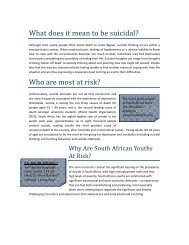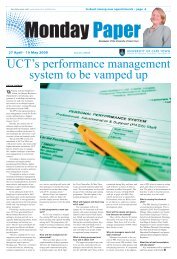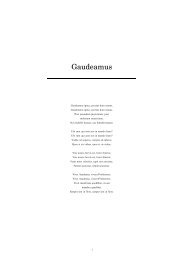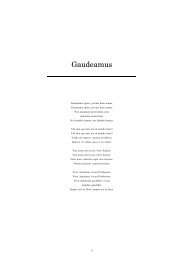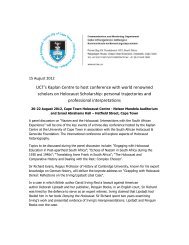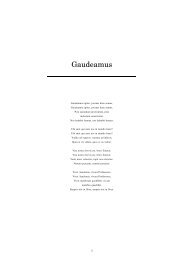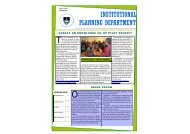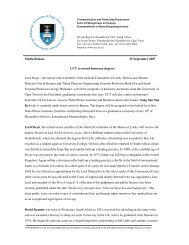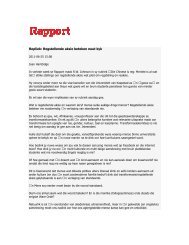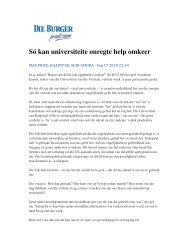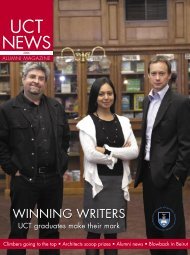uct heritage park management framework - University of Cape Town
uct heritage park management framework - University of Cape Town
uct heritage park management framework - University of Cape Town
Create successful ePaper yourself
Turn your PDF publications into a flip-book with our unique Google optimized e-Paper software.
37<br />
5. MANAGEMENT FRAMEWORK AND SPATIAL CONCEPT<br />
This section is presents the proposed Management Framework for the UCT Heritage Park. It sets<br />
out the draft guiding principles, <strong>management</strong> vision, mission and key outcomes for the<br />
<strong>management</strong> <strong>of</strong> the Forest and Dam Precincts. These have been developed in discussion with key<br />
stakeholders and the UCT Planning and Services Department.<br />
5.1 Performance criteria<br />
It is proposed that the performance criteria, set out in the UCT, Rondebosch/Observatory<br />
Campus: Development Framework Plan (DFP) and revised in 2010 15 , (defined to guide and form<br />
the basis <strong>of</strong> evaluation <strong>of</strong> all future spatial proposals), be used to inform the spatial concept and<br />
evaluate the <strong>management</strong> proposals for the UCT Heritage Park. These performance criteria are as<br />
follows:<br />
• Equity: relates largely to the issue <strong>of</strong> access, particularly for those on foot and those with<br />
disabilities;<br />
• Integration: with the surrounding community, local urban systems especially access and<br />
transport systems, between various parts <strong>of</strong> the campus and departments and between<br />
people historically separated by social and cultural barriers. The last aspect is proposed to<br />
be addressed through the creation <strong>of</strong> a system <strong>of</strong> informal, public gathering spaces;<br />
• Dignity: infers that by the making <strong>of</strong> an environmentally and socially supportive<br />
environment, there is support for the campus as a key social and educational institution<br />
<strong>of</strong> excellence;<br />
• Heritage conservation: refers to the need to respect architecturally-, horticulturally- and<br />
culturally significant buildings, landscapes and use patterns, etc.; and,<br />
• Landscape, Placemaking and Legibility: refers to the need to focus on the nature and<br />
quality <strong>of</strong> open space linking the built precincts, buildings and surrounding landscapes,<br />
the object being to make the public realm more humanely scaled, safer, more<br />
comfortable and coherent.<br />
5.2 Management vision/goal<br />
The proposed vision or goal <strong>of</strong> <strong>management</strong> <strong>of</strong> the UCT Heritage Park is as follows:<br />
The development and <strong>management</strong> <strong>of</strong> the UCT Heritage Park enhances the cultural and<br />
natural <strong>heritage</strong> landscape values associated with Groote Schuur Estate and the UCT<br />
Campus in general.<br />
5.3 Management mission/purpose (overall outcome)<br />
The proposed mission or purpose <strong>of</strong> <strong>management</strong> for the UCT Heritage Park is as follows:<br />
The UCT Heritage Park is a vegetated backdrop to UCT’s Upper Campus and is managed for<br />
the ecological, social and economic benefits to the university community and the general<br />
public in ways that are appropriate within the natural and cultural <strong>heritage</strong> landscape<br />
context.<br />
15 These were defined to guide and form the basis <strong>of</strong> evaluation <strong>of</strong> all future spatial proposals<br />
UCT Heritage Park Management Framework: Final Draft Report, July 2012



